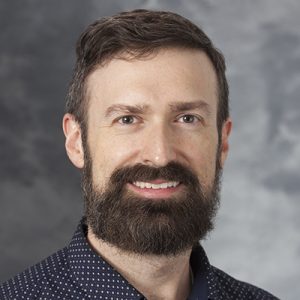
A team of researchers from four different UW departments are collaborating on a new study to reduce the amount of scar tissue that forms on the heart following a heart attack. Funded by a two-year, $388,000 Research Forward grant from the UW Office of the Vice Chancellor for Research and Graduate Education, the study is being led by Tim Kamp, MD, PhD (lead PI, Dept. of Medicine); Matthew Brown, PhD (co-PI, Dept. of Surgery); Philip Romero, PhD (co-PI, UW Dept. of Biochemistry); and Aaron LeBeau, PhD (co-PI, UW Depts. of Radiology and Pathology and Laboratory Medicine).
For many post-heart attack patients, the scar tissue on damaged heart muscle can lead to heart failure. While there are medications to treat heart failure, the drugs can have some significant side effects. In addition, despite these medications about 50% of patients with heart failure die within 5 years of their diagnosis. The research team will be conducting some initial studies on mouse models using a promising protein that was created and patented by the Wisconsin Alumni Research Foundation. They will test this protein, which is a variant of a protein called Angiotensin-Converting Enzyme 2 (ACE2), to determine if it can treat heart failure just as effectively as existing drugs but with fewer side effects. They will also explore whether combining ACE2 with a stem cell treatment can promote the healing of damaged heart muscle. According to Brown, “We are very excited about receiving this award, which will enable our interdisciplinary team to investigate a promising new treatment for heart failure,” a condition that affects approximately 6.2 million adults in the United States and causes around 380,000 deaths each year.